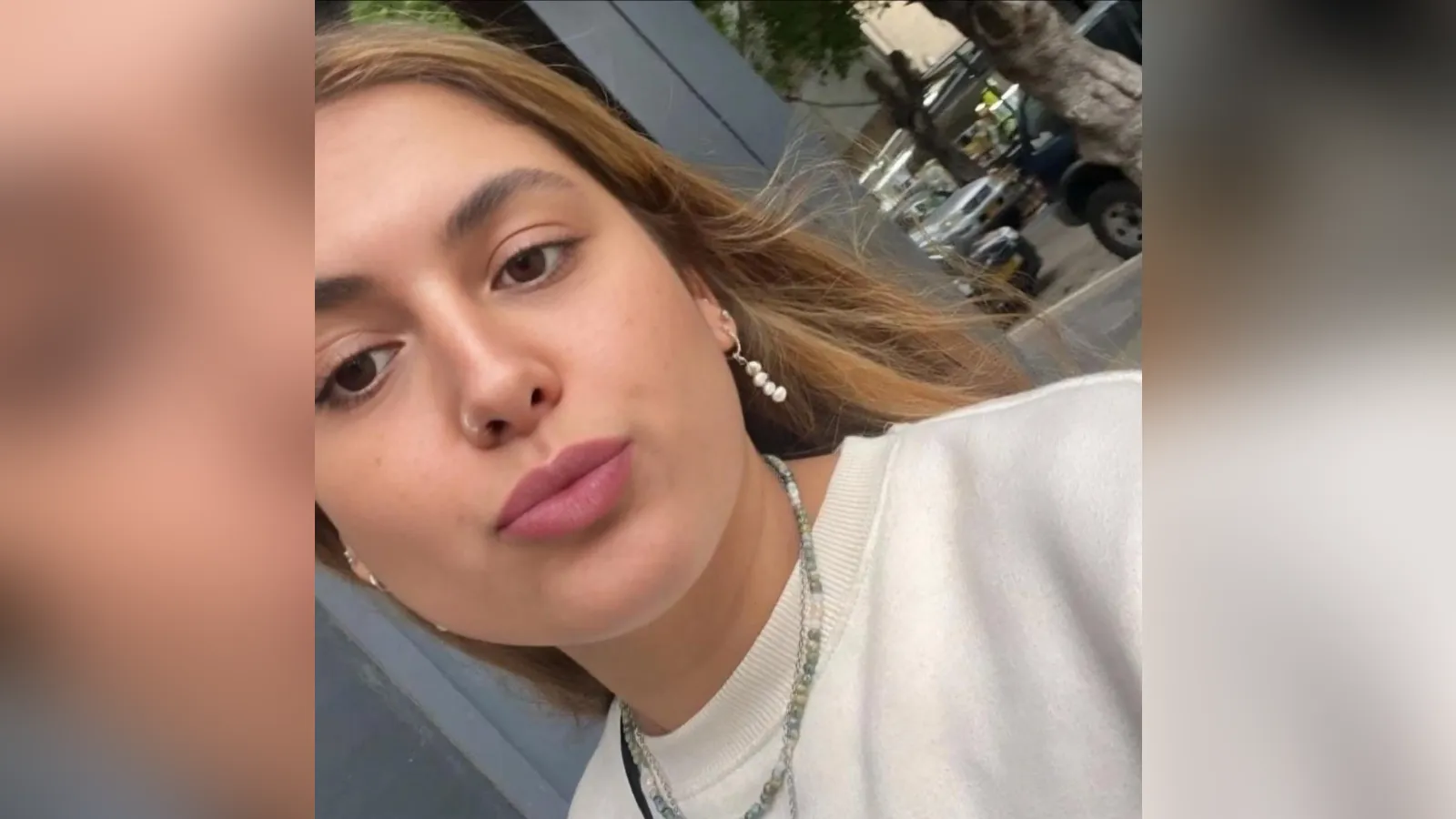On October 7, 2023, tragedy struck the Nova music festival near Kibbutz Re’im, Israel. A day that was meant to be filled with joy, music, and celebration was turned into a nightmare when Hamas militants launched a deadly attack, killing 364 people in one of the most brutal massacres in recent history.
Among the survivors of this horrific event was Shirel Golan, a 22-year-old woman who, despite escaping physical harm that day, became a victim of a different kind of trauma—one that ultimately led to her tragic death. On what was supposed to be her 22nd birthday, Shirel Golan took her own life after a prolonged battle with post-traumatic stress disorder (PTSD).
It sheds light on the unseen wounds carried by those who live through horrific events, and the dire consequences when adequate help is not provided.
The Horror of October 7
For Shirel Golan, October 7 was supposed to be a day of celebration and music, shared with thousands of festival-goers who had gathered in the Negev desert for the Nova music festival. The atmosphere was one of freedom, unity, and joy, until Hamas militants carried out a brutal attack that turned the festival grounds into a bloodbath.
Read : UN Employee ID, Mentos, Cash Found on Hamas Chief Yahya Sinwar’s Body
The militants stormed the area, shooting indiscriminately, and taking hostages. The attackers unleashed terror and destruction, killing 364 people and leaving countless others severely wounded, both physically and mentally.
Shirel and her partner managed to narrowly escape the massacre, an experience that would haunt her in the days and months to follow.
Read : IDF Targets Oct 7 Massacre Mastermind and Hamas Chief Mohammed Deif in Gaza: 71 Killed
The trauma of that day remained etched in her mind, affecting her deeply. Although she survived the physical violence, the mental scars were harder to heal. She became one of the many survivors who carried the burden of witnessing the horrors of that fateful day.
PTSD: The Unseen Wound
Post-traumatic stress disorder is a mental health condition triggered by experiencing or witnessing a terrifying event. For Shirel, the massacre at Nova music festival became the source of her PTSD. The trauma manifested in various ways—flashbacks, nightmares, anxiety, and an overwhelming sense of dread that she could not escape. It disrupted her daily life, affected her relationships, and left her feeling hopeless.
Shirel’s family revealed that despite their efforts to help her, the mental health support she received was insufficient. Although she was hospitalized twice due to her condition, the state never officially recognized her PTSD, which prevented her from receiving the comprehensive care she desperately needed.
Her brother, Eyal, blamed the Israeli state for its failure to provide adequate mental health care, stating, “The State of Israel killed my sister twice. Once in October, mentally, and a second time today, on her 22nd birthday, physically.”

Eyal’s words capture the heartbreaking reality of what happens when trauma goes untreated. For survivors like Shirel, the aftermath of such a violent event can be just as deadly as the event itself. The lack of recognition of her PTSD meant that the resources available to her were limited, leaving her to battle her mental health issues largely on her own.
The Struggle for Mental Health Support
Shirel’s story is not an isolated case. In the wake of traumatic events, mental health often takes a back seat to physical recovery.
Survivors of violence, particularly those who live through massacres, face immense psychological challenges. While their physical wounds may heal, the emotional scars can remain for years, sometimes for a lifetime.
In Israel, the government provides a range of mental health services, but survivors like Shirel often fall through the cracks. The bureaucracy involved in receiving official recognition of mental health conditions, such as PTSD, can be overwhelming.
Without this recognition, survivors may not have access to the necessary mental health services, therapy, and counseling that could help them cope with their trauma.
Shirel’s family claims that the only support she received came from the Tribe of Nova Community, a grassroots group of survivors from the festival. Her mother even took early retirement to care for her daughter, a testament to the extent of the support she required.
Despite their efforts, it was not enough to save her. Her brother’s call for the state to “wake up” reflects the urgent need for better mental health care for trauma survivors, especially those affected by mass violence.
The Role of Community Support
In the absence of adequate state support, Shirel found some solace in the Tribe of Nova Community. This grassroots group, formed by survivors of the Nova music festival massacre, became a lifeline for those grappling with the trauma of that day.
For Shirel, this community provided her with a sense of belonging and understanding that she could not find elsewhere. They offered emotional support, shared their experiences, and helped one another cope with the mental and emotional toll of the attack.
However, while community support is crucial, it cannot replace the need for professional mental health services. PTSD is a complex condition that requires specialized care, including therapy, medication, and long-term treatment.

The lack of formal recognition of Shirel’s condition meant that she did not receive the comprehensive care she needed to heal. While the Tribe of Nova Community provided her with emotional support, it was not enough to counter the deep psychological wounds she carried.
A Call for Change
Shirel Golan’s death is a tragic reminder of the far-reaching consequences of trauma and the importance of mental health care for survivors of violence. Her family’s call for the state to take responsibility highlights the urgent need for systemic changes in how mental health services are provided to trauma survivors.
Eyal’s plea for the state to “wake up” reflects the frustration felt by many families of survivors. The current system, which requires official recognition of conditions like PTSD before survivors can access necessary services, is failing those who need help the most. Mental health support should be readily available to anyone who has experienced such a traumatic event, without the need for bureaucratic hurdles.
Shirel’s story also highlights the importance of early intervention. With proper care, therapy, and support, many survivors of trauma can go on to lead fulfilling lives. However, when mental health issues are ignored or under-treated, the consequences can be devastating, as seen in Shirel’s case.
The Global Mental Health Crisis
Shirel’s story resonates far beyond Israel. Across the world, survivors of mass violence and trauma often face similar struggles. From war zones to school shootings, the mental health of survivors is often overlooked in the aftermath of tragedy.
Governments and mental health professionals must work together to ensure that survivors receive the care they need, not just in the immediate aftermath of an event, but in the long term.
Trauma does not end when the violence stops. For many survivors, the emotional and psychological toll of their experiences lasts for years, and without proper treatment, it can lead to severe mental health conditions like PTSD. Shirel’s story is a sobering reminder of what can happen when these issues are not addressed.

Shirel Golan’s tragic death underscores the urgent need for better mental health care for survivors of mass violence. The massacre at the Nova music festival may have taken her physically unharmed, but the psychological trauma of that day stayed with her, ultimately leading to her suicide on her 22nd birthday.
Her family’s grief is compounded by their belief that the state failed to provide her with the mental health support she needed to heal.
Shirel’s story is a call to action for governments and mental health professionals everywhere. Survivors of violence need more than physical care—they need comprehensive mental health services that address the deep emotional and psychological scars left by traumatic events. Only by recognizing the importance of mental health and providing the necessary support can we hope to prevent more tragedies like the one that took Shirel’s life.

